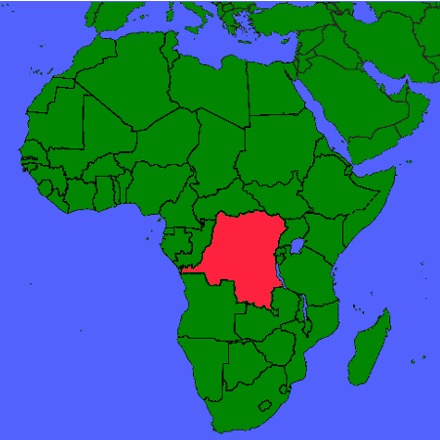
Circle the area on this map

C. The Congo River which runs through the country is the second longest river in Africa and the deepest river in the world. The virus was first isolated in a Congo village near the Ebola River which connects and drains to the Congo River.
B. Kinsasha’s 11.8 million people are about 360 miles away from Mbandaka which is about 100 miles from where this latest outbreak started. Ebola is much harder to contain in urban areas, and the Congo River still is a transportation lifeline in a land with few roads or railways.
D. All of these nations are on the western coast of the continent. The virus causes internal bleeding and spreads rapidly through contact with small amounts of bodily fluid. Its early symptoms are not obvious, and the worst effects may take weeks to show.
A. The Congo’s bushmeat crisis emerged mainly as a result of the poor living conditions of the Congolese people and a lack of education about the dangers of eating it. Many of the people are dependent on bushmeat, either as an income source (selling the meat), or for food.